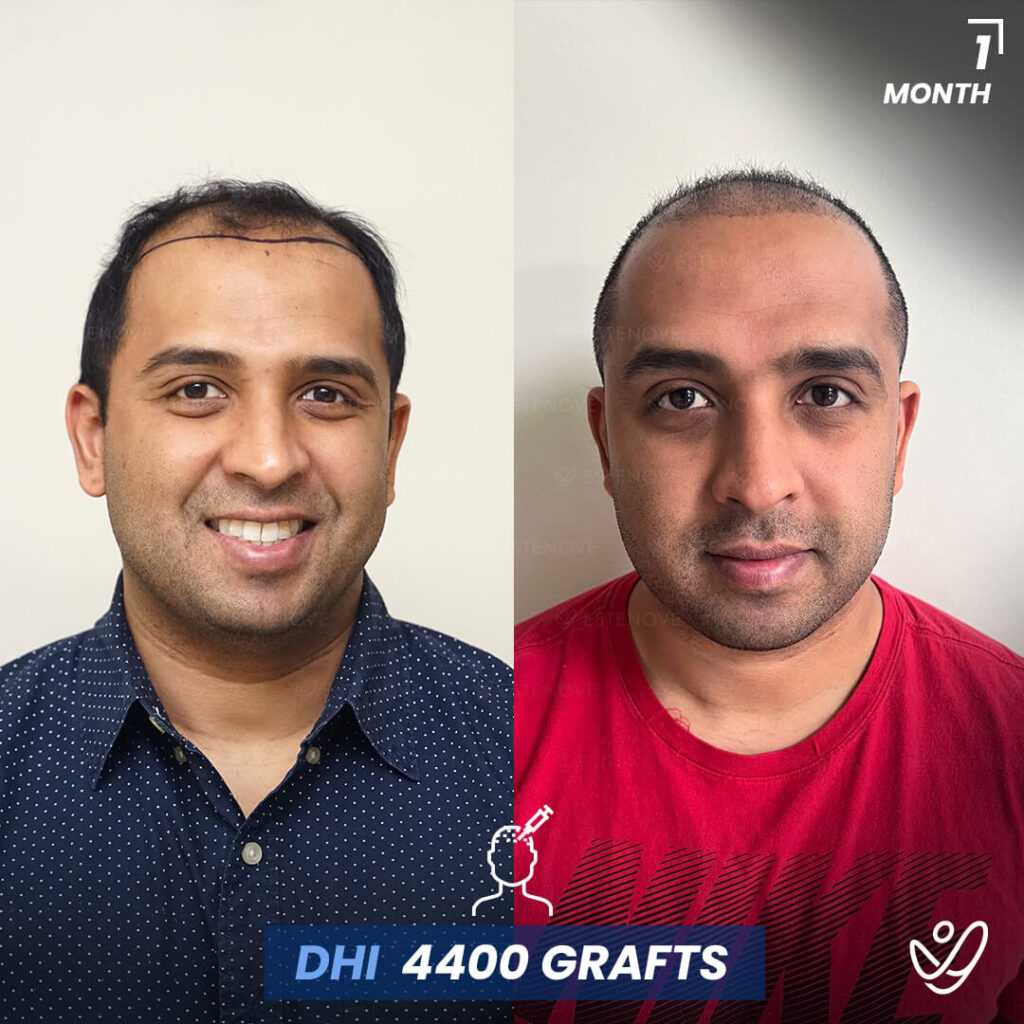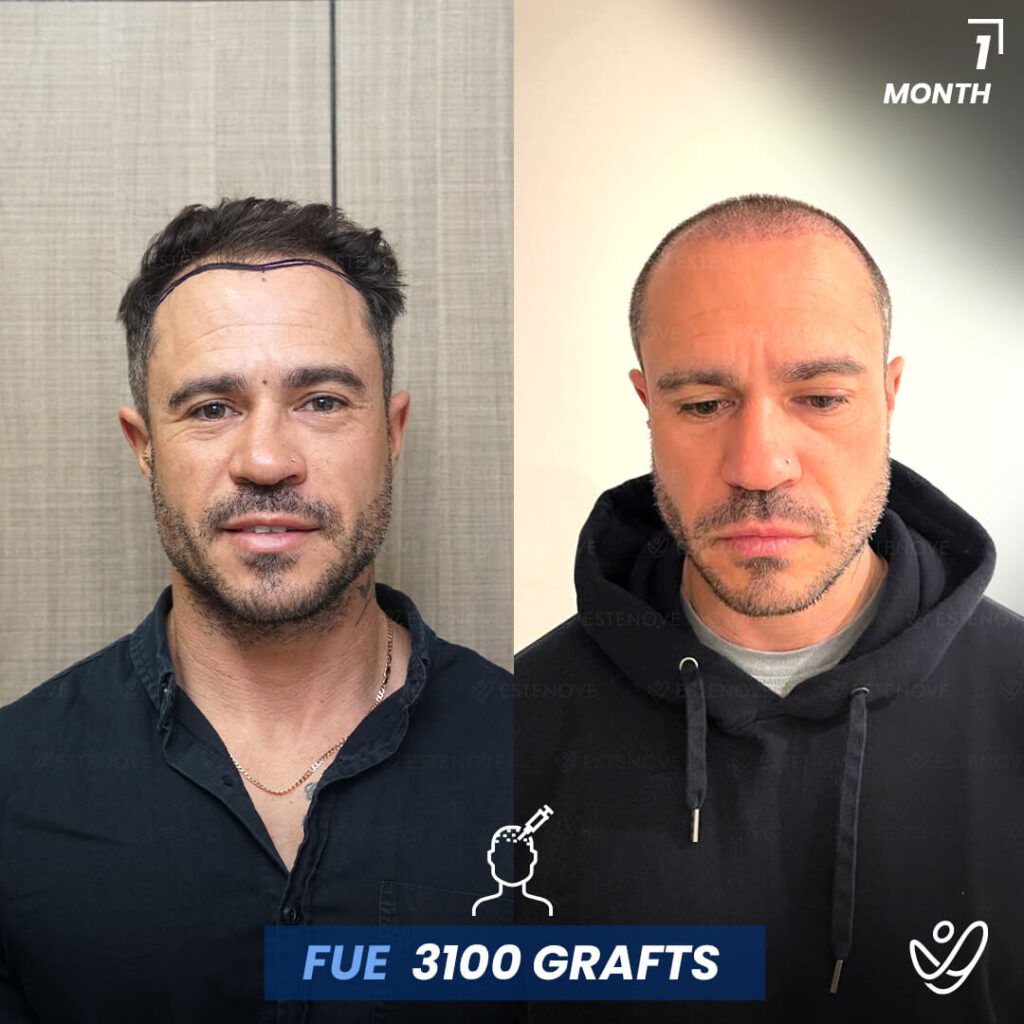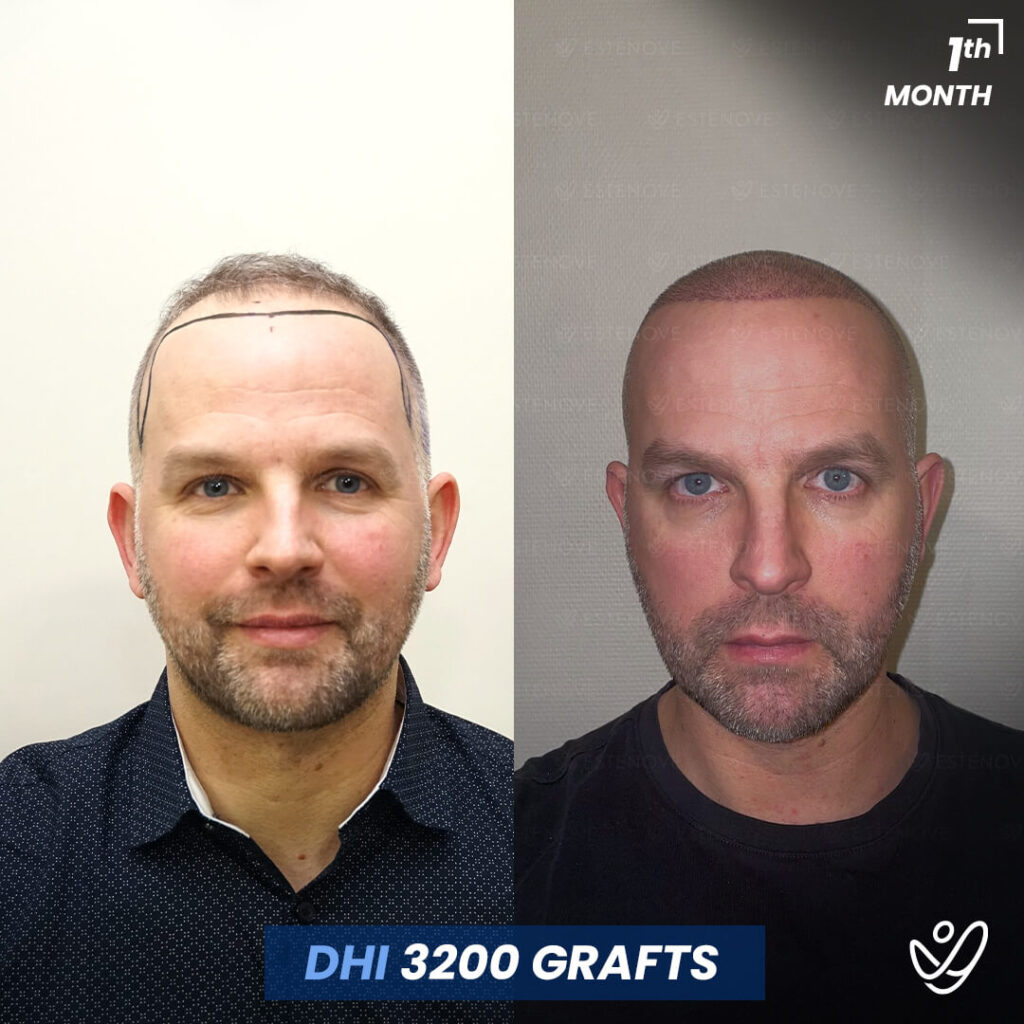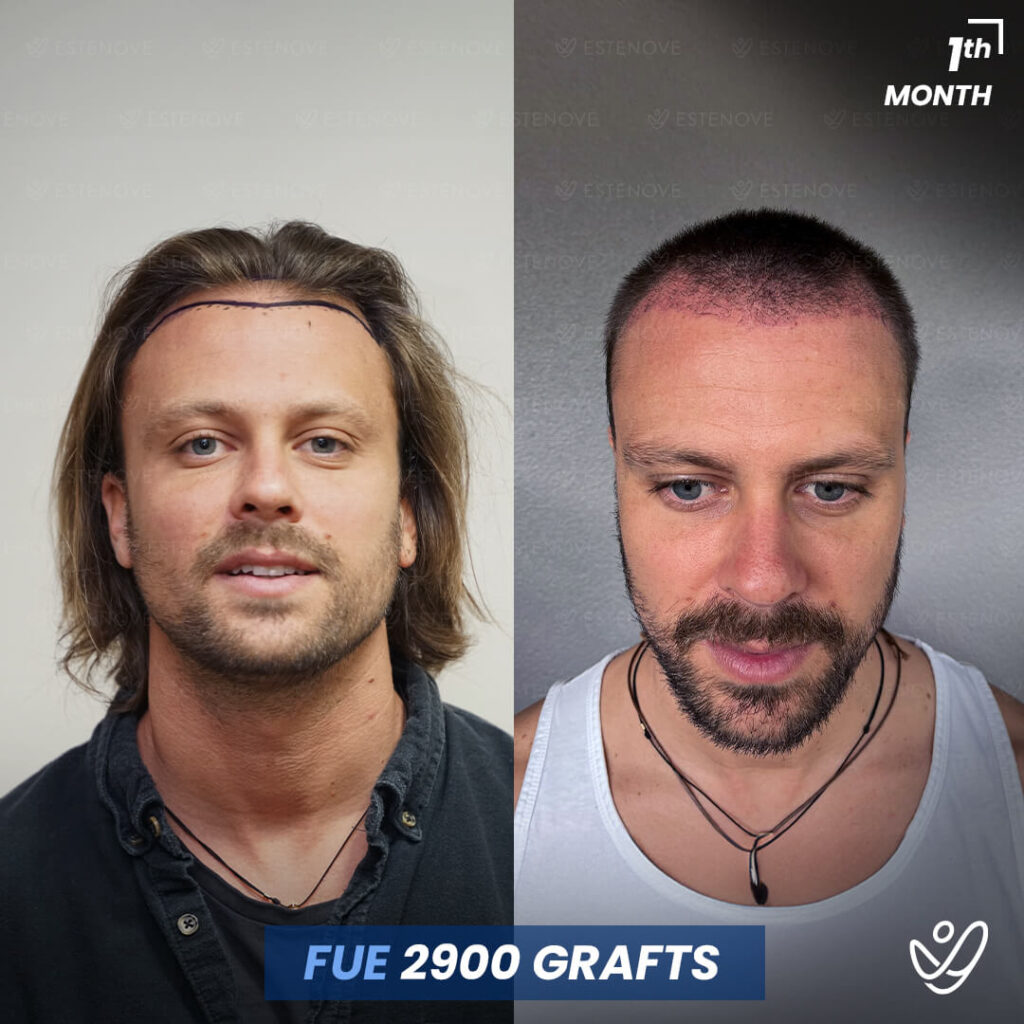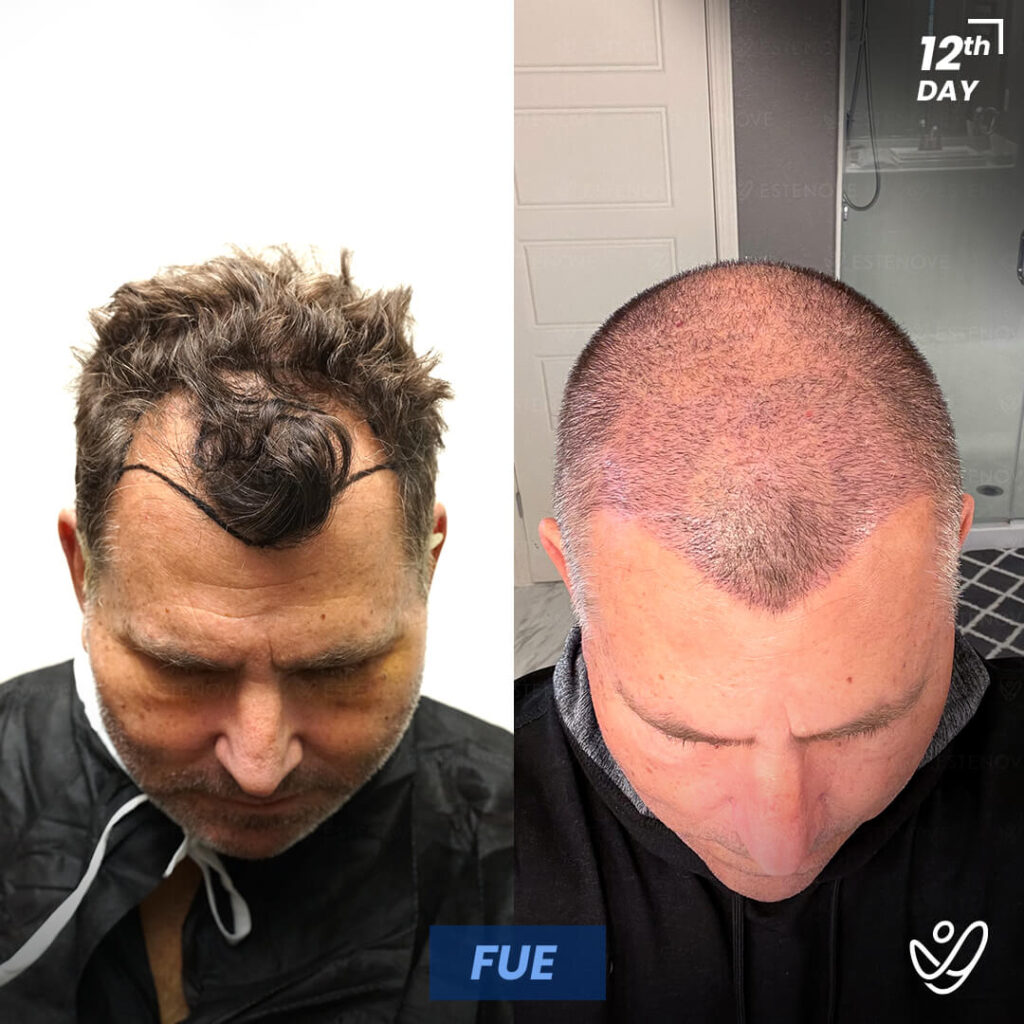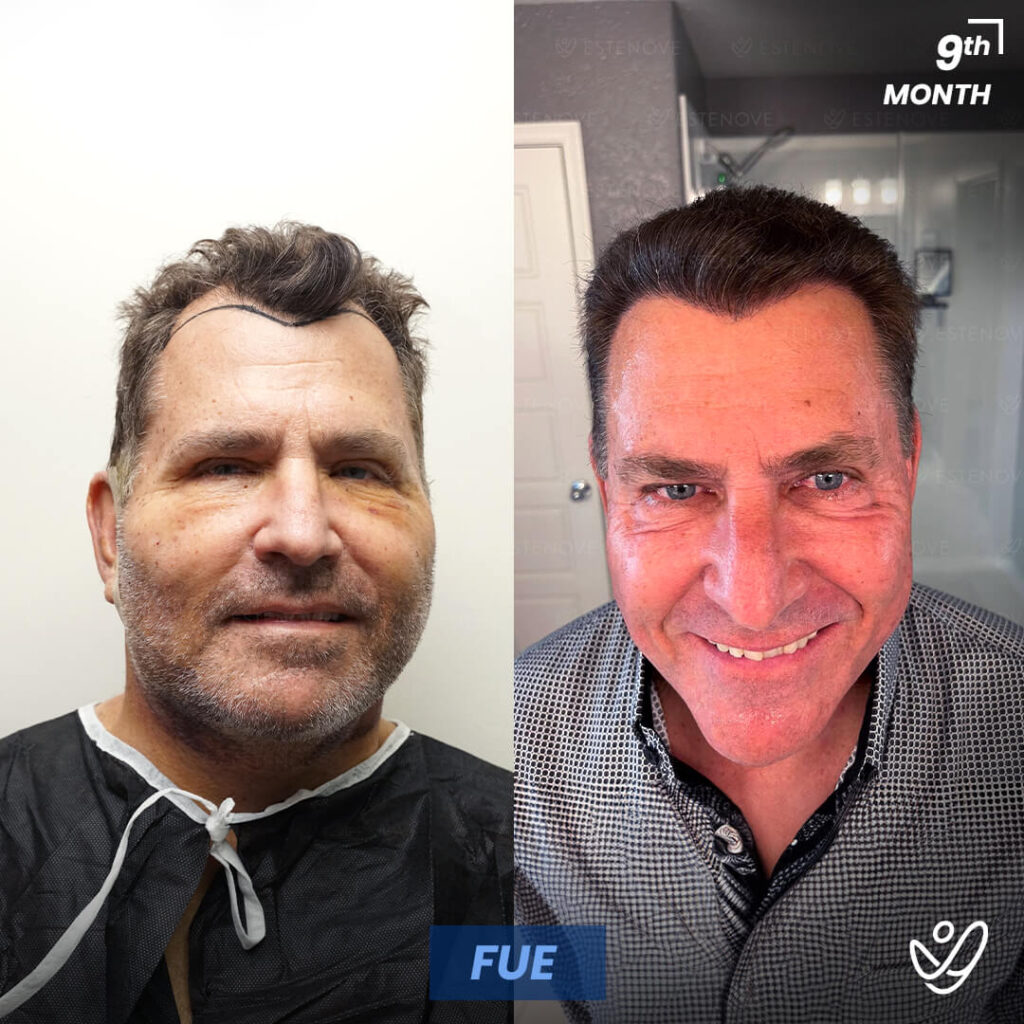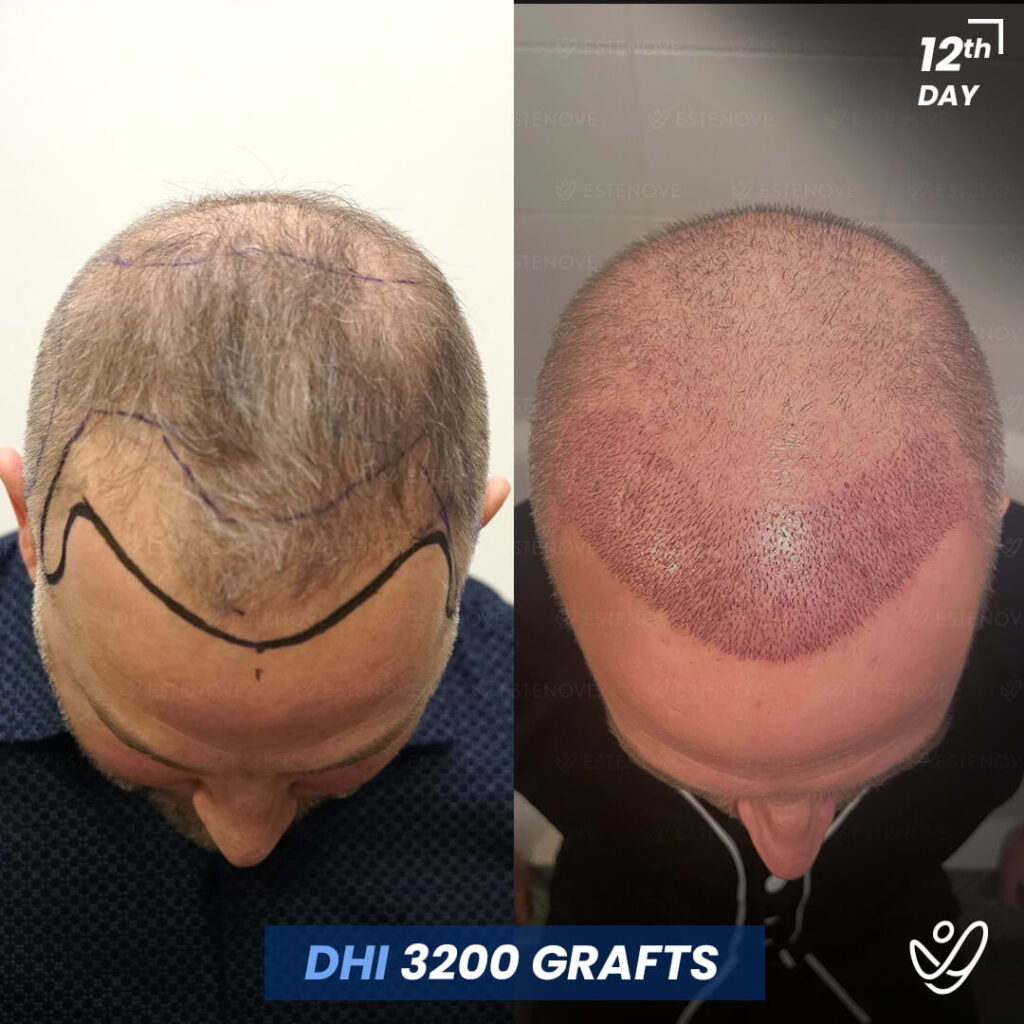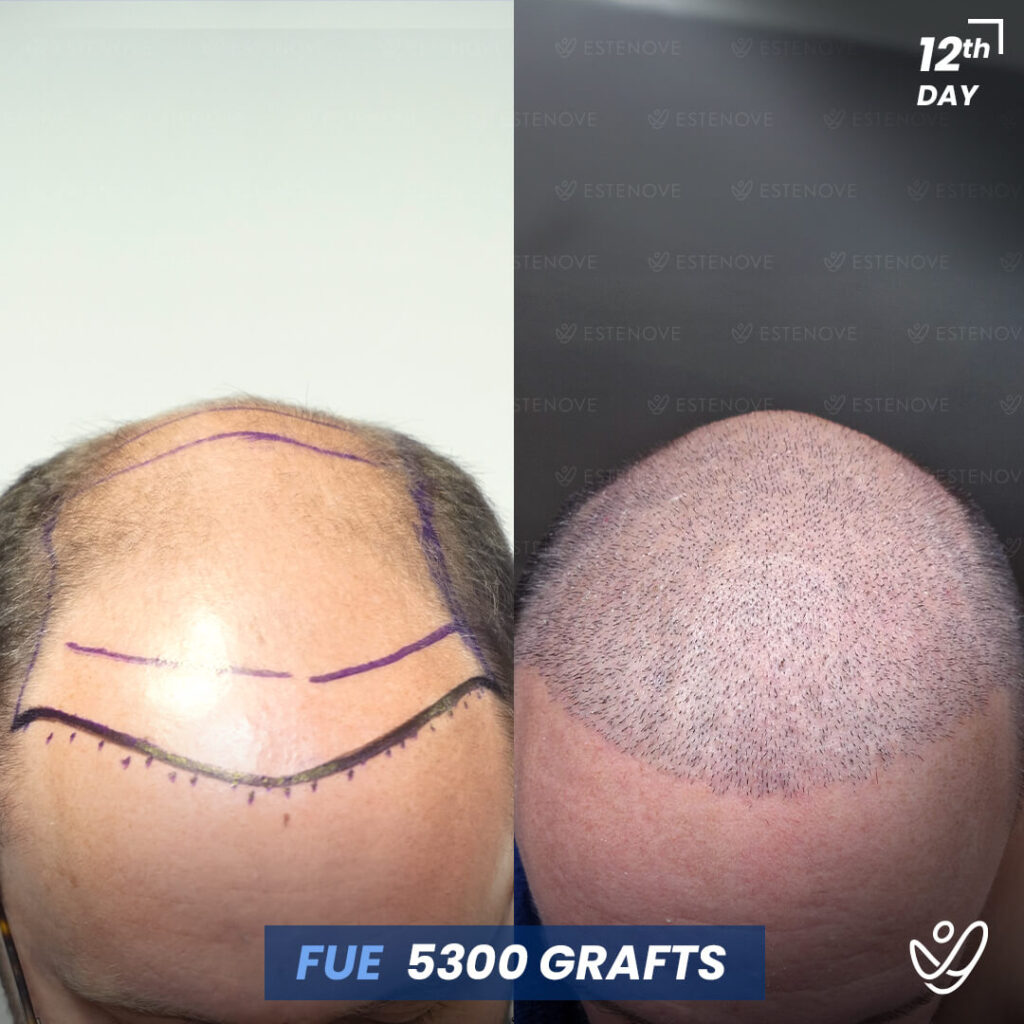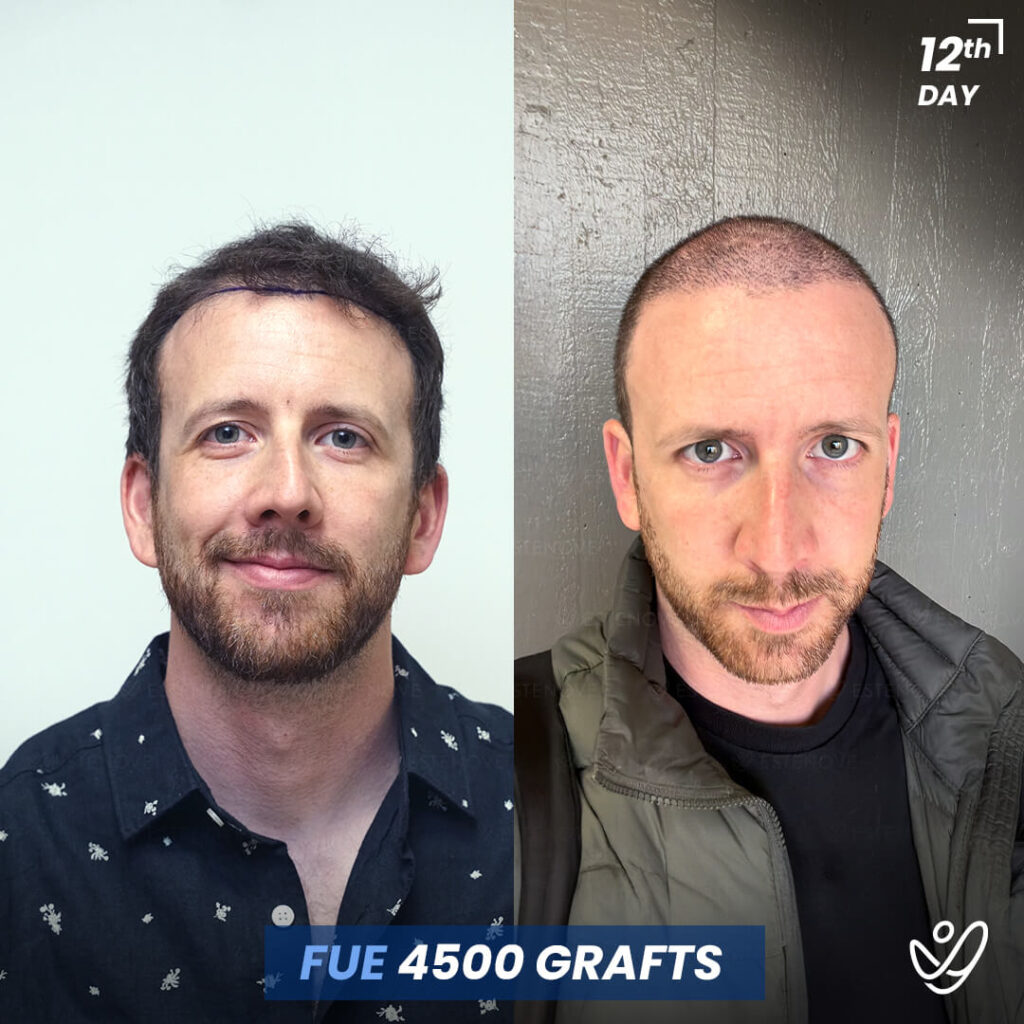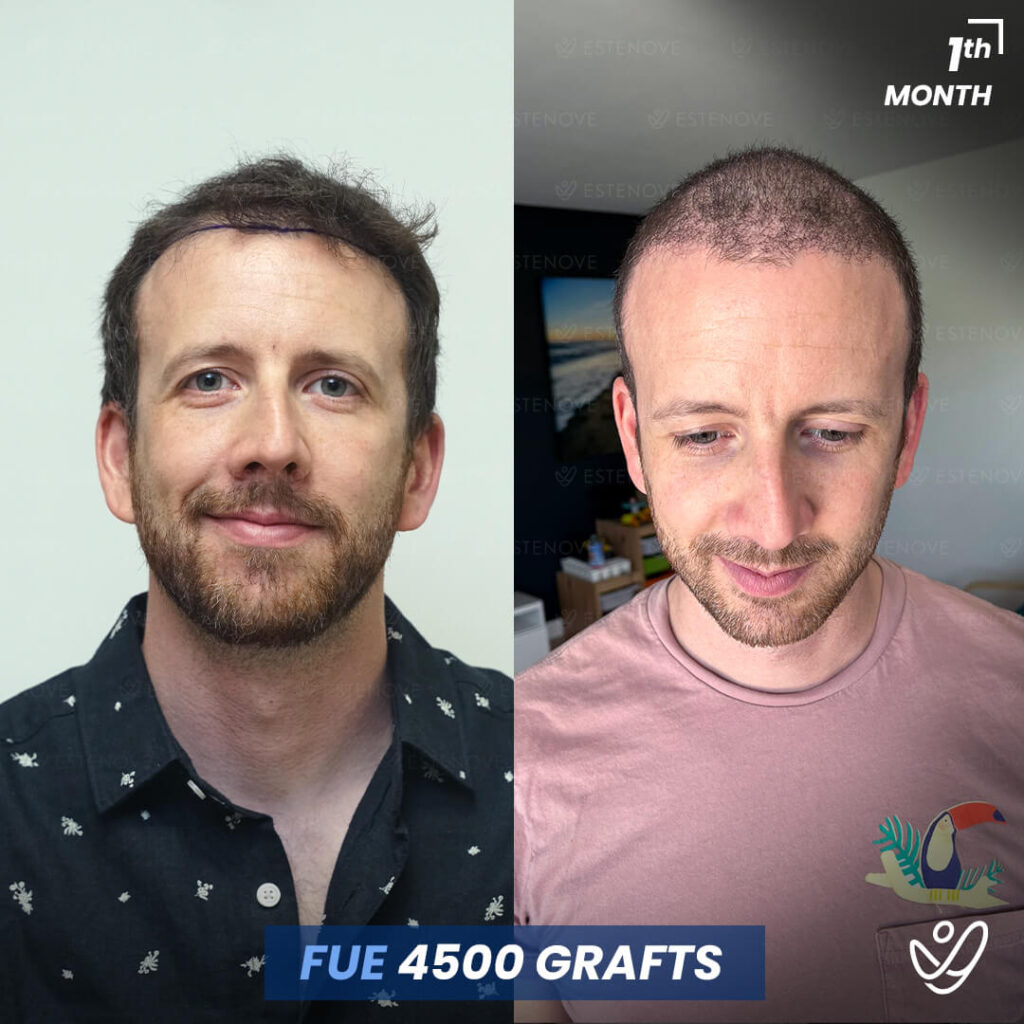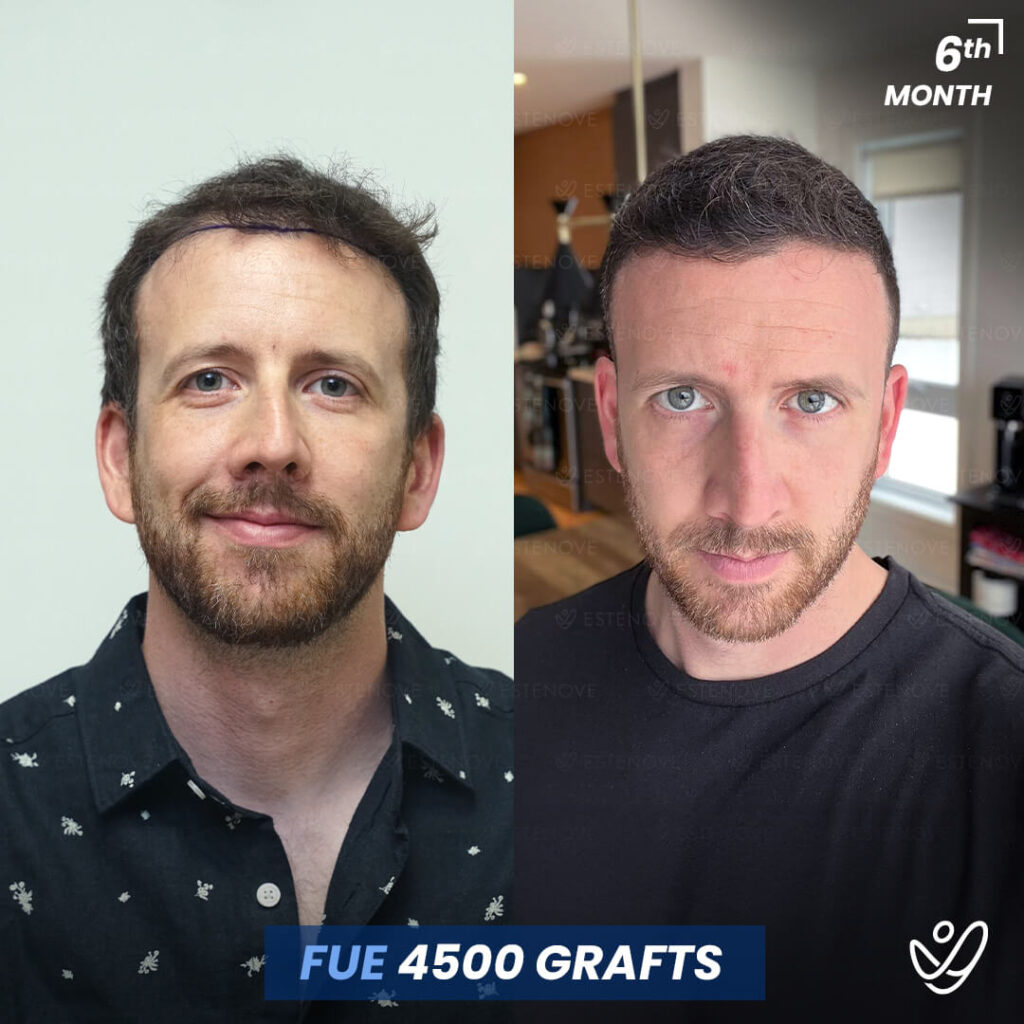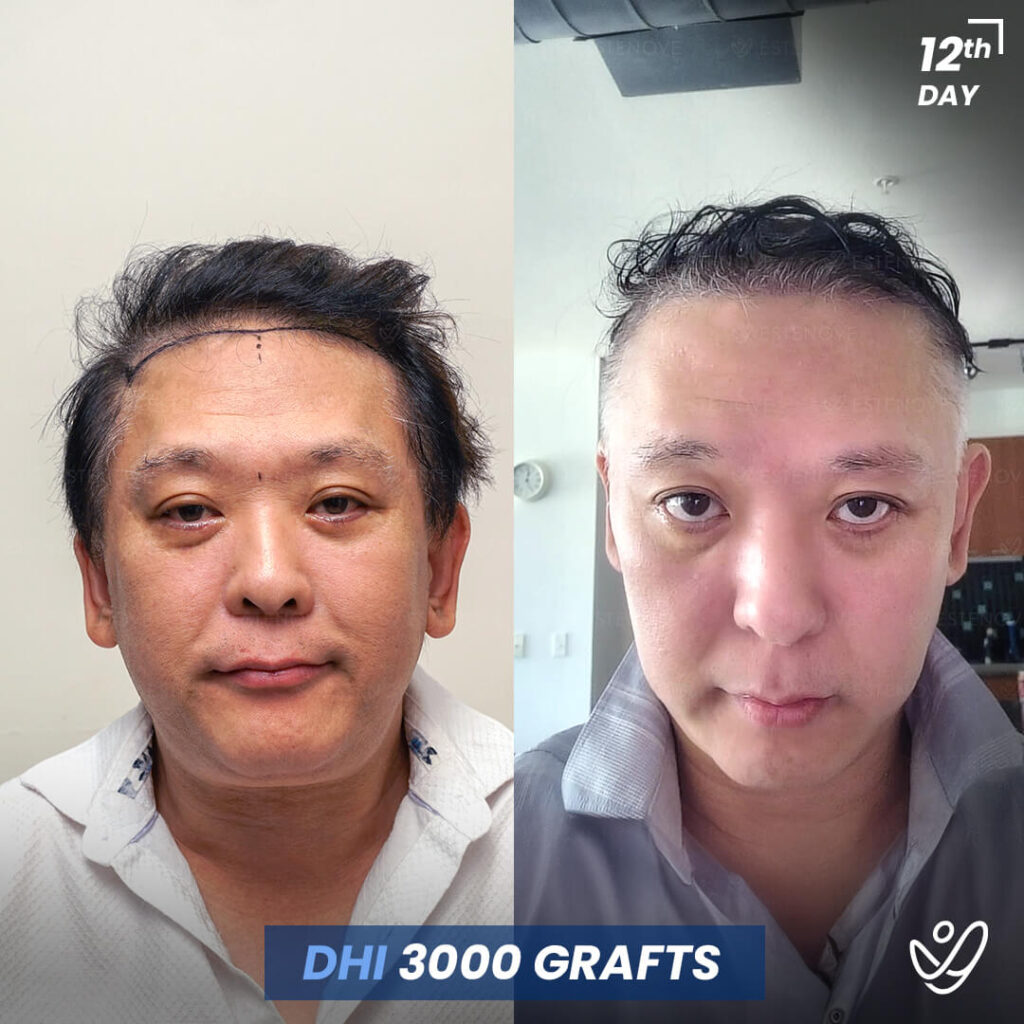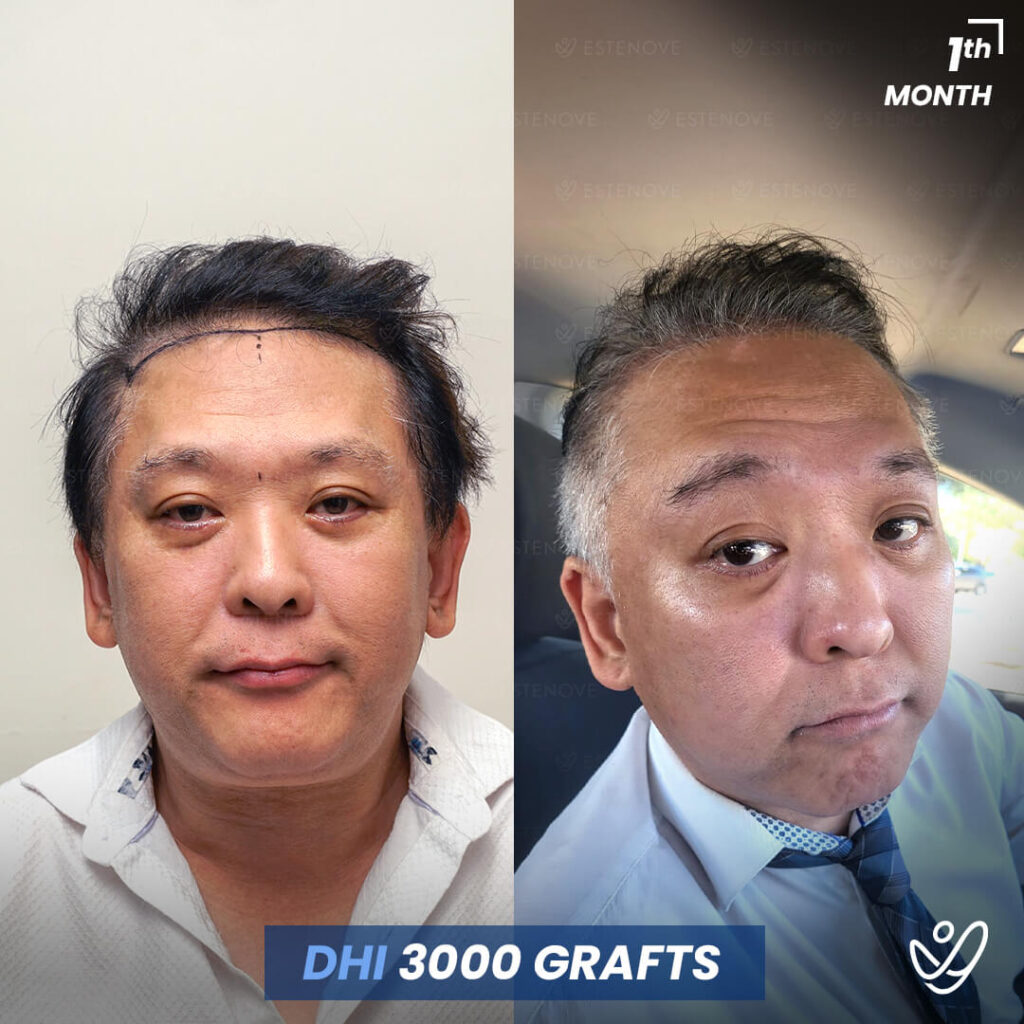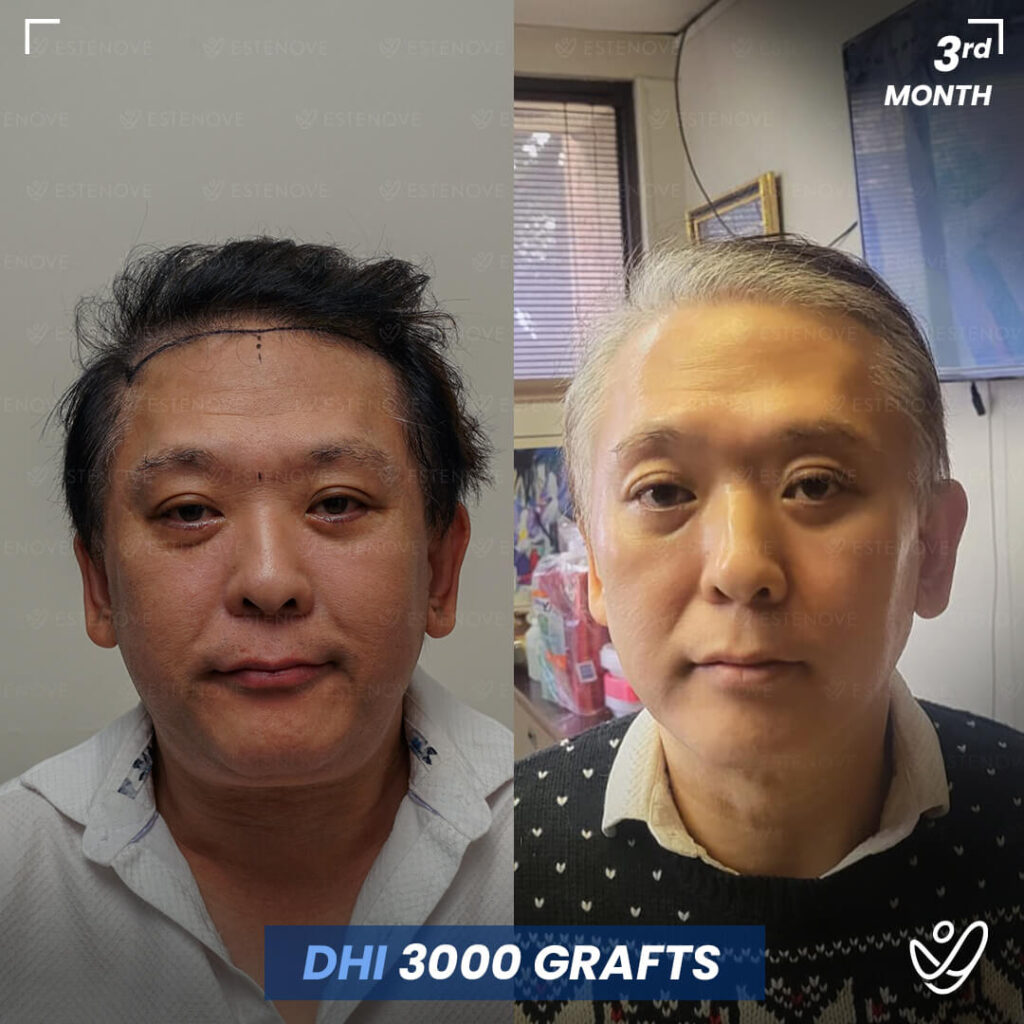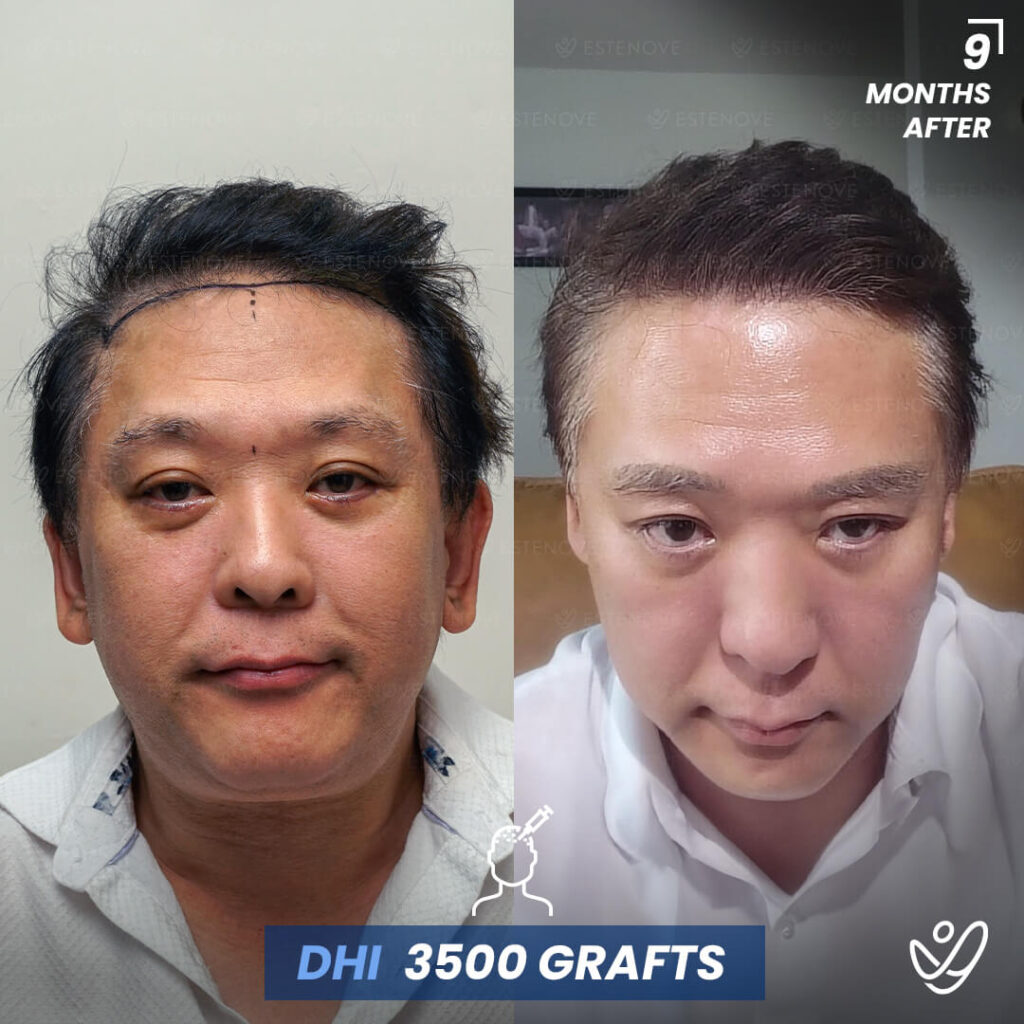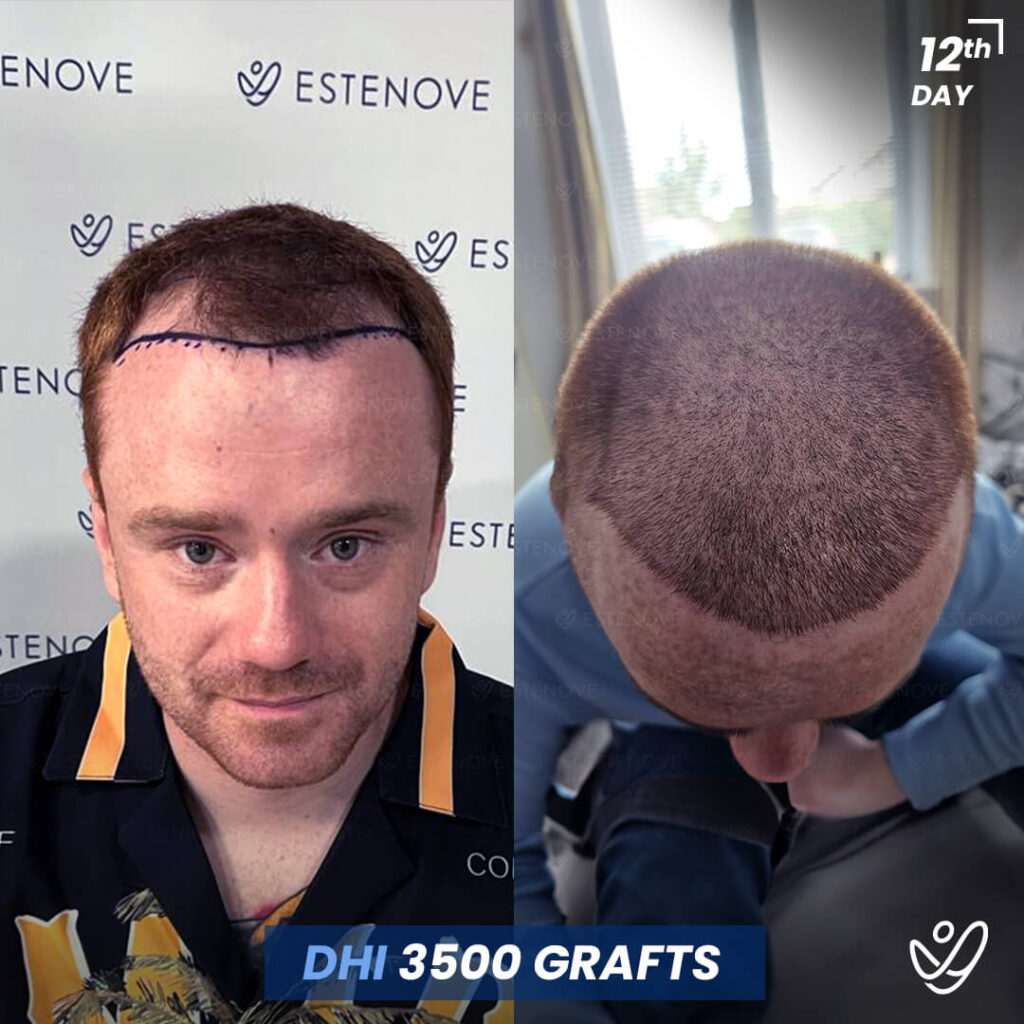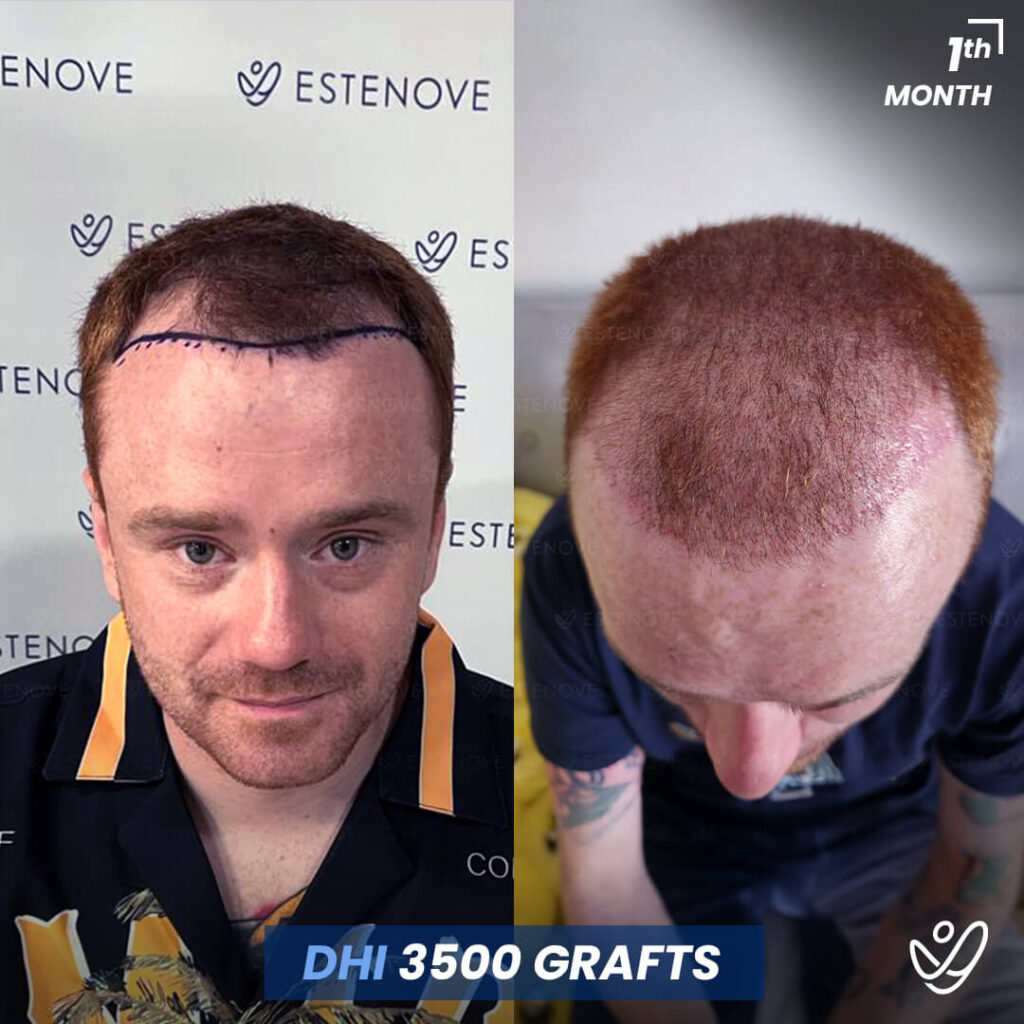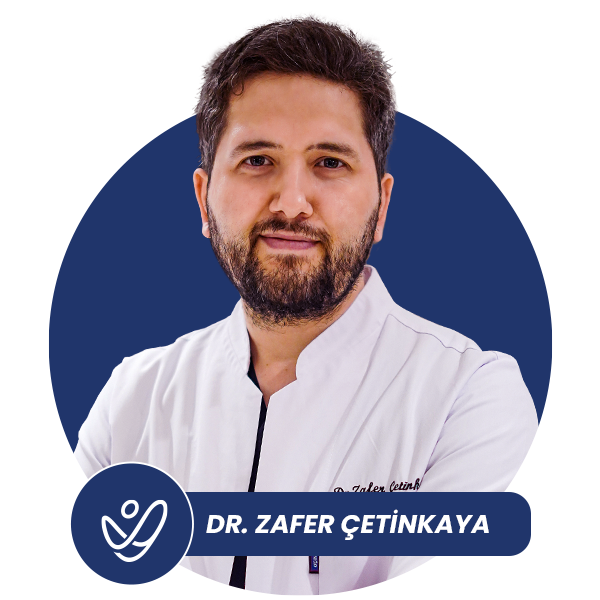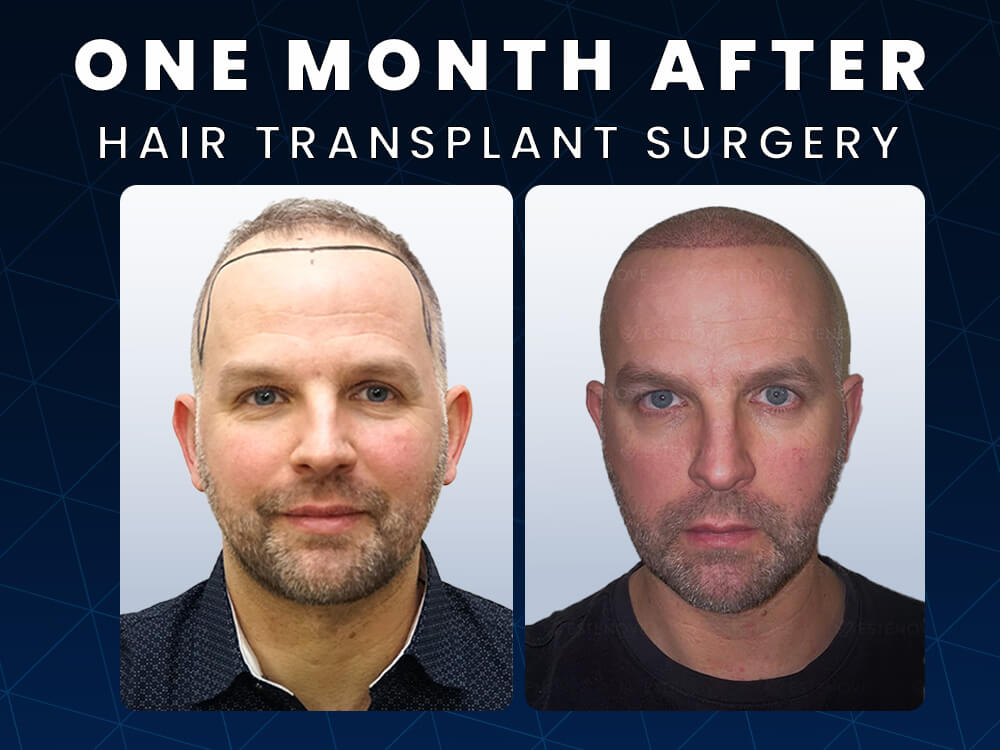
Hair transplantation is a surgical procedure that involves the transfer of hair follicles from a donor site to a recipient site. The first month after a hair transplant is a critical period for the patient, as it is the time when the transplanted hair follicles are most vulnerable to damage and infection. It’s important for patients to follow the post-operative instructions provided by their surgeon to ensure a successful recovery.
What are the possible complications after a hair transplant?
One of the most common complications of hair transplantation is infection. Patients should be advised to keep the recipient area clean and dry to prevent infection. They should also avoid touching the recipient area and refrain from scratching or rubbing the scalp. Patients should also avoid strenuous physical activity and exposure to direct sunlight for the first month after the procedure.
Another potential complication of hair transplantation is bleeding. Patients should be advised to avoid taking blood-thinning medications, such as aspirin, for at least two weeks before the procedure to reduce the risk of bleeding.
Patients should also avoid smoking and drinking alcohol for at least two weeks before and after hair transplant procedure, as these activities can increase the risk of bleeding and delay the healing process.
Patients should also be advised that the transplanted hair follicles will shed within the first two to three weeks after the procedure. This is a normal part of the healing process, and patients should not be alarmed. The transplanted hair follicles will begin to grow new hair within three to four months after the procedure, and patients should see significant hair growth within six to nine months.¹
What to Expect Immediately After Hair Transplant Procedure
Immediately after the procedure, you may experience some swelling, redness, and discomfort in the donor and recipient areas. These are normal side effects and should subside within a few days. Your doctor will provide you with specific instructions on how to manage any immediate post-operative symptoms, ensuring your comfort and well-being during this crucial healing period.
It’s also common for the transplanted hair to initially appear sparse and scraggly. This is entirely normal and part of the natural hair growth process. As the transplanted hair follicles acclimate to their new environment, they may undergo a temporary shedding phase. This shedding is a positive sign that the hair follicles are transitioning into the growth phase, where they will produce new, healthy strands of hair. With time and patience, you will witness the transformation of these initial sparse hairs into a lush and vibrant head of hair.
1st Month Timeline After Hair Transplant
- For the first few days, lie on your back and avoid touching the treated area except for applying prescribed treatments and washings. If treated on the back of your head, lie face down. Avoid sun exposure and wear a soft hat if you must go out.
The day after the transplant, remove and reapply the bandage on the donor area. A forehead bandage will prevent edema. - From day 2, use only prescribed drugs and solutions on the transplanted area. Do not wash your hair for the first 3 days; wash only after the 3rd day to ensure the transplant’s success. Avoid contact with and impact to the transplanted area. Refrain from smoking, coffee, tea, and alcohol for the first 3 days as they can affect the new follicles.
- From day 3 to 15 and beyond, wash your hair with pH 5.5 antibacterial shampoos to promote hair follicle development and prevent bacteria.
About a week post-transplant, scars and scabs will fall off and incisions will heal. - Scabs will start shedding around day 10,if delayed, use soft massages while washing. Keep the area clean and hygienic. Report any itching to your doctor and avoid applying substances like jelly or spray to the transplanted area.
- For one month, protect the area from sunlight, rain, extreme temperatures, baths, saunas, pools, and the sea to prevent infection and ensure success.
Take a look Hair Transplat Turkey – Before & After Gallery for more results.
Changes in the First Month Post-Hair Transplant
As your scalp begins to heal, you may notice various changes in both the physical and emotional aspects. Understanding these changes will help you manage your expectations and cope with the recovery process more effectively.
It’s important to note that the first month post-transplant is a crucial period in your healing journey. Beyond the visible changes, there are intricate processes happening beneath the surface as your body works tirelessly to repair and rejuvenate the transplanted hair follicles.
Physical Changes and Healing
During the first month, the swelling and redness in the donor and recipient areas should gradually diminish. Healing will progress, and any scabs or crusts that formed post-procedure will begin to flake off naturally. It’s important not to pick at or scratch these scabs, as it may damage the delicate grafts and hinder the healing process.
Moreover, as the healing continues, your scalp may feel tender to the touch. This tenderness is a normal part of the recovery process and is a sign that your body is responding appropriately to the transplant procedure.
You may also experience some itchiness or tingling sensations as the hair follicles begin to regenerate. This is a positive sign that new growth is occurring. Embrace these sensations as indicators of the transformative journey your scalp is undergoing.
Emotional Impact and Coping
It’s common for patients to experience a range of emotions during the early stages of recovery. As the initial excitement of the procedure wears off, you may find yourself feeling impatient or anxious about the progress of your hair growth.
Remember that hair transplant results take time and require patience. Finding healthy coping mechanisms, such as engaging in stress-relieving activities or talking to supportive friends and family, can help manage these emotions and maintain a positive mindset throughout the recovery process.
Furthermore, it is really helpful to practice self-care during this period. Taking time for yourself, practicing some techniques to relax and focus on your overall well-being provides you a smoother emotional recovery alongside the physical healing.
Maintaining Your New Hair Growth
Now that you’ve undergone a hair transplant, it’s essential to maintain your new hair growth for long-lasting results.
Recommended Hair Care Routine
Your doctor will provide you with specific guidelines on how to care for your transplanted hair. Following a gentle hair care routine and using appropriate products can help maintain the health of your hair and scalp. You will be informed and supported in all these processes with Estenove. We are welcoming you with 80+ Professional Staff and 10+ Years of Experience.
Avoiding harsh chemicals, heat styling tools, and vigorous brushing or combing will protect the delicate transplants and promote healthy growth. Regularly moisturizing your scalp and nourishing your hair with recommended products will contribute to optimal results.
Lifestyle Changes for Optimal Results
In addition to proper hair care, making certain lifestyle changes can significantly impact the success of your hair transplant. Avoiding smoking and excessive alcohol consumption can promote better blood circulation and overall hair health.
Eating a balanced diet rich in vitamins, minerals, and proteins is also crucial for healthy hair growth. Incorporating regular exercise and managing stress levels can contribute to improved blood flow and overall well-being.
When To Seek Medical Attention
While the first month after a hair transplant is generally characterized by healing and positive changes, it’s important to remain vigilant and be aware of any potential complications.
Identifying Signs of Infection
Signs of infection include excessive redness, swelling, pain, or discharge from the surgical area. If you notice any of these symptoms, it’s essential to seek immediate medical attention to prevent further complications. In Estenove, patients have 1 Year After Care Assistance.
Understanding When Post-Transplant Symptoms are Abnormal
During the recovery period, it’s normal to experience some discomfort, itching, or hair shedding. However, if you notice any severe or persistent symptoms that concern you, it’s important to consult your doctor for a proper evaluation.
By promptly addressing any concerns, you can ensure a successful recovery and enjoy the full benefits of your hair transplant.
The first month after a hair transplant is a critical phase that sets the stage for the future success of your hair growth. Understanding the various physical and emotional changes, addressing common concerns, and adhering to the recommended care routine will greatly contribute to the long-term outcomes of your hair transplant. Remember to maintain a positive mindset and consult your doctor if you have any questions or concerns along the way. Embrace this new chapter of your life with confidence and look forward to the exciting journey ahead. Best of luck, from the Estenove Team!
While the first month after a hair transplant is generally characterized by healing and positive changes, it’s important to remain vigilant and be aware of any potential complications.
Identifying Signs of Infection
Signs of infection include excessive redness, swelling, pain, or discharge from the surgical area. If you notice any of these symptoms, it’s essential to seek immediate medical attention to prevent further complications. In Estenove, patients have 1 Year After Care Assistance.
Understanding When Post-Transplant Symptoms are Abnormal
During the recovery period, it’s normal to experience some discomfort, itching, or hair shedding. However, if you notice any severe or persistent symptoms that concern you, it’s important to consult your doctor for a proper evaluation.
By promptly addressing any concerns, you can ensure a successful recovery and enjoy the full benefits of your hair transplant.
The first month after a hair transplant is a critical phase that sets the stage for the future success of your hair growth. Understanding the various physical and emotional changes, addressing common concerns, and adhering to the recommended care routine will greatly contribute to the long-term outcomes of your hair transplant. Remember to maintain a positive mindset and consult your doctor if you have any questions or concerns along the way. Embrace this new chapter of your life with confidence and look forward to the exciting journey ahead. Best of luck, from the Estenove Team!
Sources:
- Kerure, Amit S, and Narendra Patwardhan. “Complications in Hair Transplantation.” Journal of Cutaneous and Aesthetic Surgery, U.S. National Library of Medicine, 2018, https://www.ncbi.nlm.nih.gov/pmc/articles/PMC6371733/
- Hair Transplantation – Statpearls – NCBI Bookshelf. https://www.ncbi.nlm.nih.gov/books/NBK547740/.
- True, Robert H. Is Every Patient of Hair Loss a Candidate for Hair Transplant?-Deciding Surgical Candidacy in Pattern Hair Loss. Indian Journal of Plastic Surgery: Official Publication of the Association of Plastic Surgeons of India, U.S. National Library of Medicine, 20 Dec. 2021, https://www.ncbi.nlm.nih.gov/pmc/articles/PMC8719975/.

